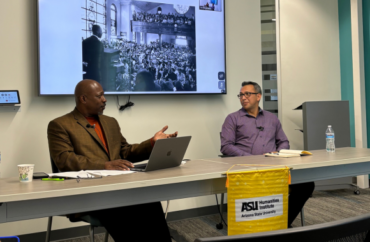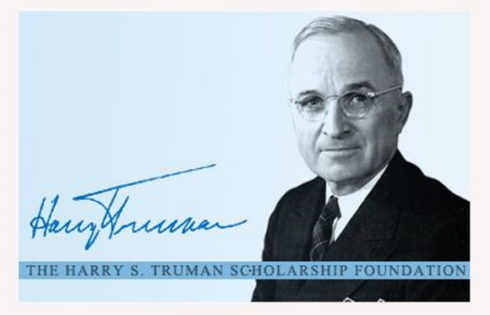
ASU faculty criticize ‘white exceptionalism’ in literary studies and claim the state has manipulated black history
PHOENIX — Two faculty members condemned “white ownership” of Shakespeare and the state’s manipulation of black history during an “Appropriation Series” at Arizona State University last week.
The scholars are pushing for changes in curriculum and leadership that reflect more “diverse” voices. During the panel, they spoke to eleven ASU students in the audience and other faculty members via Zoom.
English Professor Ruben Espinosa argued that Shakespeare’s legacy has been manipulated for purposes of exclusion and viewed through a lens of “white superiority.”
He said that for the Jan. 6 “insurrectionists” at the U.S. capitol, Shakespeare represents a symbol of “white exceptionalism” and “racial hierarchy.”
The organizers sent a letter to the Folger Shakespeare Library, the world’s largest Shakespeare collection located one block from the U.S. Capitol, and not to other institutions like the Library of Congress to notify them of the protest beforehand, he said.
Espinosa said this act reflects the insurrectionists’ perception of Shakespeare as an emblem of “white superiority,” which is why they deemed it important to protect the library during the protest.
“Shakespeare sits atop of that racial hierarchy. He is the epitome of what they consider white exceptionalism…and this is why he’s valuable,” the English professor said.
Espinosa also argued that the Shakespeare Library has a historical legacy tied to anti-immigrant and white exceptionalist sentiments, reflected in its founding leadership and early rhetoric.
He said that “the first director of the library, Joseph Quincy Adams” saw the institution as “a preservation of the language of the American people at a time when immigrants are coming in like locusts to steal our culture, to steal our language.”
“This is the way he imagined immigration,” Espinosa said.
“It kind of has this origin in anti-immigrant sentiments, right, all the way to January 6th, when we think about that white exceptionalism, and this notion of a kind of white ownership of Shakespeare,” he said.
The scholar also said that when leadership roles in the Shakespearean field are taken by individuals who “do not look the part”—meaning they aren’t white—there is often resistance.
“Shakespeare would not have come across as a black person or a non-white person in the entirety of his life,” he said.
Espinosa argued that a more meaningful appropriation of Shakespeare occurred when the Public Theater in New York had 30 black actors recite the famous “To Be or Not To Be” soliloquy from Hamlet following the death of George Floyd.
MORE: ASU hosts event touting polyamory with ‘lived experience experts’
Victoria Day, the event coordinator, declined to answer questions from The College Fix via email about the goal of the event and the definition of appropriations. Instead, she directed The Fix to a recording of the event.
Curtis Austin, a historian and associate director of the Humanities Institute who was also on the panel, argued that the state has historically appropriated black history, claiming it presents itself as a champion of civil rights movements while actively resisting them.
“But the fact of the matter is, the federal government, as well as state and local governments, pushed back very hard against movement activists and the movement itself,” Austin said.
“This is one way the state has been able to appropriate the history, the meaning, and, what I claim, the legacy of the movement,” he said.
He cited films including “The Help,” “Mississippi Burning,” and “The Butler” as examples of media that distort the narrative by focusing on “white saviors” and “white redemption” rather than “black agency” and leadership. They “have appropriated the black freedom struggle,” he said.
“This appropriation is problematic because it reinforces the notion that the fight for civil rights required white intervention and leadership while downplaying the role of black agencies, where in fact…it’s the state, whether it’s the federal government, the state government, or local governments that’s actually pushing back against the movement,” Austin said.
He argued that by appropriating black history, the state is attempting to “control what the world sees, what it believes, and how it relates not just to the black freedom struggle but to black people themselves.”
The event was the second of two panels on appropriation this semester at ASU.
“What constitutes cultural appropriation, and when is it unethical? Should we adopt voices beyond our own, and if so then what factors must be weighed beforehand?” reads the event description.
MORE: Christian professor’s ‘Intro to Christianity’ class torpedoed at ASU
IMAGE: Gabrielle Temaat for The College Fix
Like The College Fix on Facebook / Follow us on Twitter






Please join the conversation about our stories on Facebook, Twitter, Instagram, Reddit, MeWe, Rumble, Gab, Minds and Gettr.